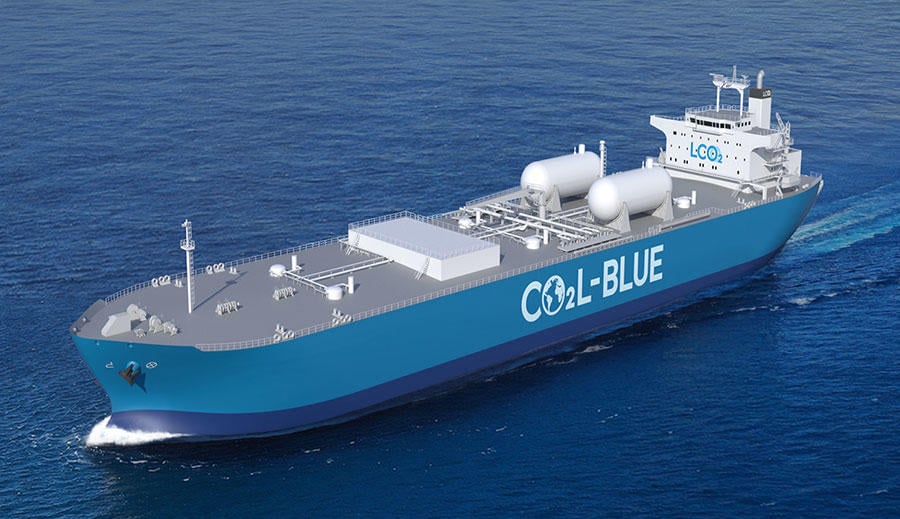Mitsubishi Shipbuilding And Nihon Shipyard Launch Joint Study For Development Of LCO2 Carrier

In a significant move towards sustainable shipping, Mitsubishi Shipbuilding and Nihon Shipyard have announced a joint study focused on developing an ocean-going liquefied carbon dioxide (LCO2) carrier. This collaboration aims to leverage Mitsubishi’s expertise in liquefied gas carrier design and construction, alongside Nihon Shipyard’s extensive experience in shipbuilding and advanced technology. The project is set to commence construction at Nihon Shipyard from 2027 onwards, marking a pivotal step in the maritime industry’s efforts to support carbon capture and storage (CCS) initiatives.
Growing Demand for LCO2 Carriers
The demand for LCO2 carriers is expected to rise significantly in the coming years. This increase is driven by the need to transport large volumes of CO2 safely for CCS projects. CCS involves capturing carbon dioxide emissions and storing them underground to mitigate climate change. As countries around the world, particularly in Asia, ramp up their efforts to implement CCS projects, the need for specialized vessels to transport CO2 becomes critical.
Mitsubishi Shipbuilding and Nihon Shipyard recognize this growing demand and are committed to establishing a robust shipbuilding framework in Japan. Their collaboration aims to create vessels that can efficiently and safely transport liquefied CO2. By combining Mitsubishi’s advanced gas handling technology with Nihon Shipyard’s shipbuilding expertise, the two companies hope to meet the anticipated needs of the CCS market. This initiative aligns with global trends, as regions like the European Union have already begun to invest heavily in CCS infrastructure.
Commitment to a Carbon Neutral Future
Mitsubishi Heavy Industries (MHI) Group is actively pursuing strategic measures to support the energy transition. The development of LCO2 carriers is part of a broader initiative to enhance the maritime industry’s role in achieving carbon neutrality. Mitsubishi Shipbuilding plans to utilize its marine engineering technologies to contribute to this goal. The company is not only focused on traditional shipbuilding but also on innovative solutions that address environmental challenges.
Nihon Shipyard is also taking proactive steps in this direction. Anticipating future regulations on CO2 emissions, the company is exploring the commercialization of LNG and ammonia-fueled ships. The development of LCO2 carriers represents the next logical step in this journey. By collaborating with various Japanese shipping companies and energy firms, Mitsubishi Shipbuilding aims to create a demonstration ship for LCO2 transport, paving the way for the commercialization of this vital shipping sector.
Together, Mitsubishi Shipbuilding and Nihon Shipyard are poised to play a crucial role in establishing a CCS value chain. Their efforts will not only contribute to the realization of a carbon-neutral world but also position Japan as a leader in sustainable maritime solutions.
